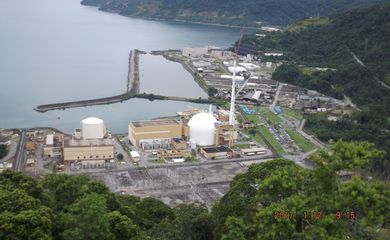Brazil to have definitive repository for nuclear waste by 2029

Brazil is expected to establish a permanent repository for nuclear waste by early 2029. This facility will centralize the storage of materials resulting from operations that produce radioactive waste, including nuclear power plants, medical facilities, and the food industry, for centuries to come.

The repository is expected to be completed by the National Nuclear Energy Commission (CNEN), the regulatory body overseeing nuclear activities in Brazil, under the Ministry of Science, Technology, and Innovation.
The repository is a key component of the Nuclear and Environmental Technology Center (Centena) project. This initiative aims to design, construct, and commission a technology center that not only provides permanent storage for radioactive waste but also includes support buildings for operational activities and facilities for research and technological development. The center will also serve as a hub for disseminating nuclear sector activities and offering specialized training.
Currently, radioactive waste generated by Brazil's two nuclear power plants, Angra 1 and Angra 2, located on the coast of Rio de Janeiro, is stored in warehouses near the plants. Stringent safety procedures and strict monitoring ensure there is no environmental pollution or risk to people both inside and outside the nuclear power plants.
This material, which includes contaminated tools and uniforms, is isolated in steel barrels and small containers before being transported to the Tailings Management Center (CGR), a complex comprising three warehouses. Currently, around 7,900 volumes are stored in this facility, which has the capacity to receive additional material until 2030.
Centena Project
According to the Centena project description, the new facility will operate for 60 years and undergo monitoring for an additional 300 years after its closure.
Clédola Cássia Oliveira de Tello, the technical coordinator of the Centena Project, explained that the facility will undergo several licensing phases before becoming operational. "The first phase relates to the site, the second to construction, and the final phase to operation," she stated.
The exact location of the Centena facility has not yet been announced. "Currently, the projected start of operations is late 2028 to early 2029," said the technical coordinator.
While nuclear activity is most commonly associated with energy generation through power plants, it is also widely used in other industries. In medicine, nuclear technology is applied in diagnostics, examinations, and treatments for various diseases. In the food industry, ionizing radiation is used to eliminate harmful microorganisms and delay ripening, thereby extending shelf life.





